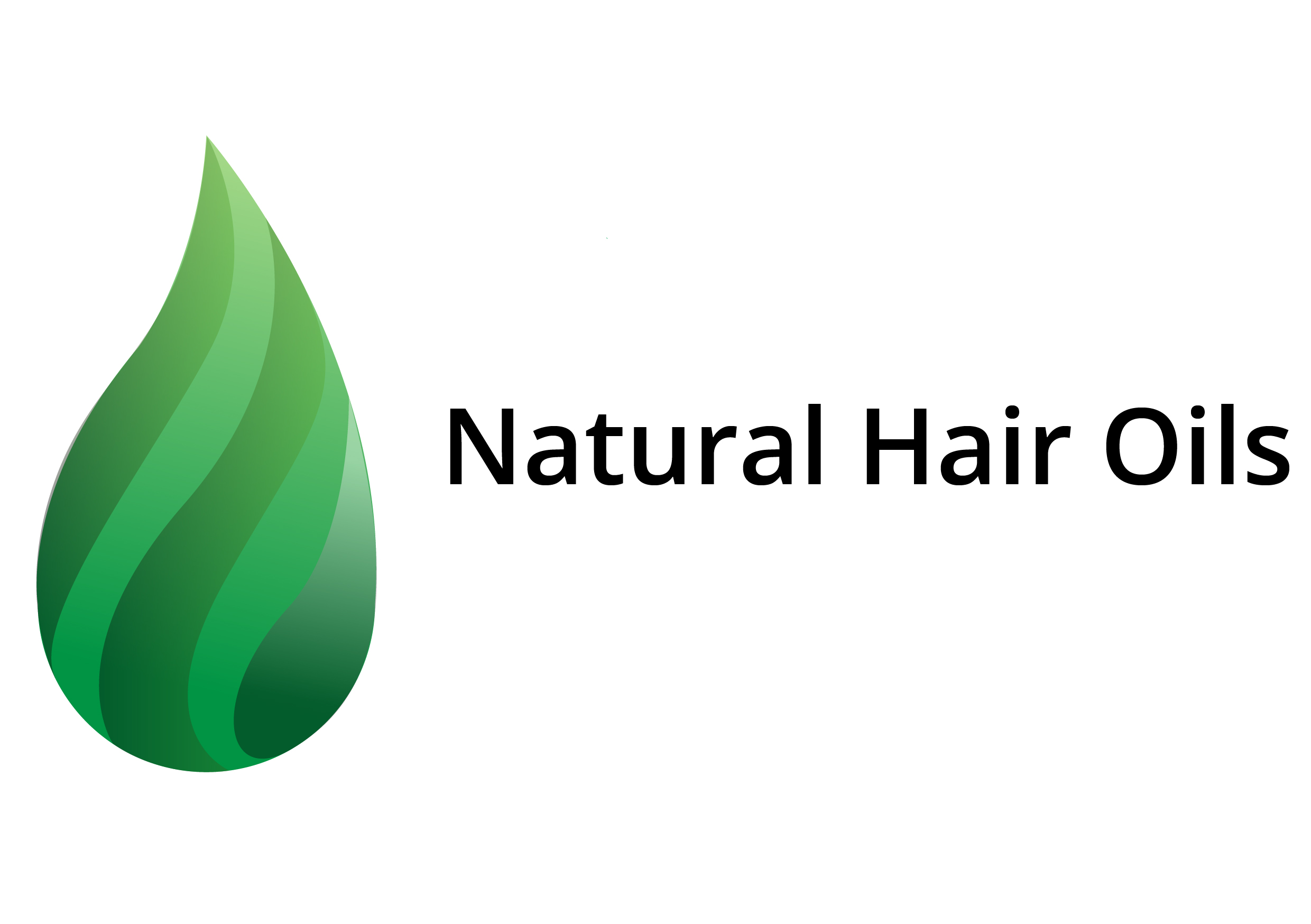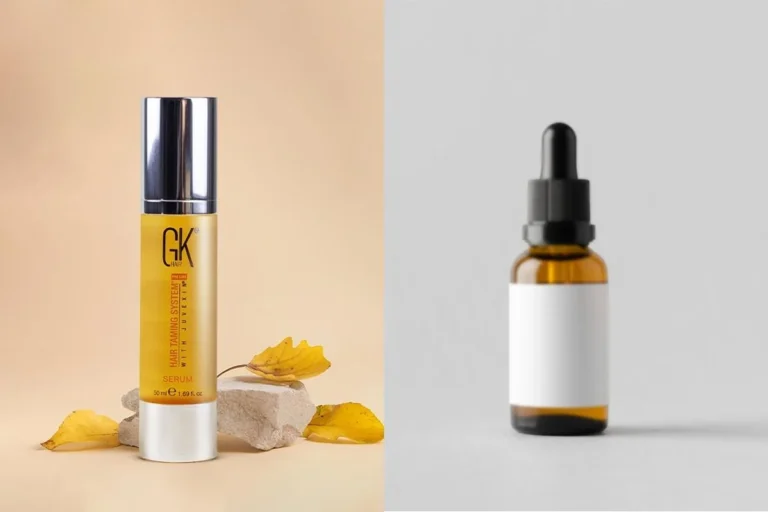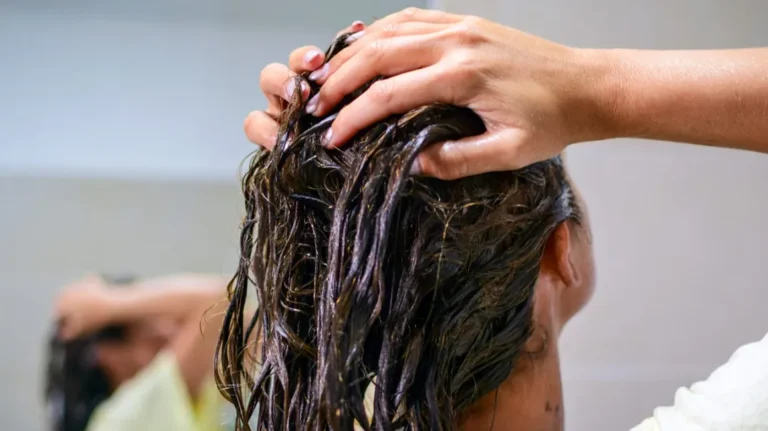When it comes to hair care, there are countless products and treatments that promise to help with hair growth. Among the most popular remedies is the use of hair oils. From castor oil to argan oil, coconut oil, and beyond, hair oils have been hailed as a natural solution for promoting healthy hair growth. But is it true? Does hair oil actually help with hair growth, or is it just another beauty myth?
In this post, we’ll explore the connection between hair oil and hair growth, separating fact from fiction. We’ll delve into how different oils work, their potential benefits, and whether using hair oil should be a staple in your hair care routine for growth.
The Science Behind Hair Growth
To understand how hair oils may or may not aid in hair growth, it’s important to first explore how hair grows naturally. Hair growth occurs in cycles, with each strand going through a growth phase, a resting phase, and a shedding phase. On average, hair grows about half an inch per month, but this rate can be influenced by factors like genetics, diet, and hair care practices.
The key to promoting hair growth is ensuring that the scalp is healthy and that hair follicles are in optimal condition. A nourished scalp encourages the best possible environment for hair to grow, while poor scalp health can lead to hair thinning and hair loss. This is where hair oils come in—many oils contain nutrients and compounds that are believed to support healthy follicles, reduce hair loss, and potentially even encourage new growth.
How Hair Oils Can Support Hair Growth
While no single product can work miracles, the right hair oils, when used correctly, can offer a range of benefits that may improve your chances of seeing healthier, stronger hair growth. Here’s a closer look at how hair oils can help:
1. Stimulating Blood Circulation
Massaging hair oil into your scalp isn’t just a relaxing experience—it’s beneficial for your hair growth efforts too. Scalp massage with oil can help improve blood circulation to the hair follicles. This increased blood flow delivers essential nutrients and oxygen to the scalp, which can encourage healthy hair growth. Furthermore, the massage itself helps to strengthen the roots of the hair, preventing breakage and fall.
Some oils, like peppermint and rosemary oil, are particularly known for their ability to stimulate blood flow to the scalp. Studies have shown that these oils can help to increase circulation, promoting a healthier environment for hair growth.
2. Strengthening Hair Follicles
Many hair oils are packed with vitamins, minerals, and essential fatty acids that nourish the hair follicles. This nourishment helps to strengthen the hair shaft, reduce breakage, and prevent damage that could inhibit hair growth. For example, argan oil is rich in vitamin E and antioxidants, which can help maintain the health of your hair follicles, ensuring that your hair continues to grow strong and resilient.
Oils such as castor oil, which is high in ricinoleic acid, are often praised for their ability to promote thicker, stronger hair. While the research on castor oil’s direct effects on hair growth is limited, many users report seeing thicker hair and reduced hair shedding after regular use.
3. Reducing Scalp Inflammation
Inflammation on the scalp can disrupt hair growth by affecting the follicles and leading to conditions like dandruff, dryness, or even hair loss. Certain oils have anti-inflammatory properties that help soothe the scalp and reduce irritation. For example, tea tree oil has natural antimicrobial properties that can help combat dandruff and other scalp conditions, ensuring that hair follicles remain healthy.
Using hair oils that promote scalp health and reduce inflammation can help prevent conditions that hinder hair growth and contribute to hair thinning.
4. Preventing Hair Loss
Hair oils can help prevent hair loss by addressing the root causes of shedding, such as dryness, scalp buildup, and breakage. For instance, coconut oil is often used as a pre-shampoo treatment to help reduce protein loss and prevent damage caused by washing and heat styling. When hair is less prone to breakage, it can grow longer and thicker.
Additionally, oils like castor oil and jojoba oil can help maintain the scalp’s natural oils, preventing dryness that could lead to itching, flakiness, and shedding. Maintaining a balanced scalp environment is essential for encouraging the best possible hair growth.
5. Hydrating and Moisturizing
Dry and brittle hair is more prone to breakage, and when hair breaks, it stops growing longer. Many hair oils are deeply hydrating and work to lock in moisture, preventing the hair from becoming dry and frizzy. Oils like argan oil, coconut oil, and olive oil are excellent for moisturizing the hair and sealing in hydration. When the hair is properly moisturized, it’s more elastic, less likely to break, and able to grow longer without compromising its strength.
Common Hair Oils and Their Effects on Hair Growth
Now that we understand how hair oils can support hair growth, let’s take a look at some of the most popular oils and their unique properties:
- Castor Oil: Often touted as a miracle oil for hair growth, castor oil is rich in ricinoleic acid, which is believed to help improve circulation to the scalp. Although scientific evidence on its direct role in hair growth is still inconclusive, many users swear by its effectiveness in reducing hair thinning and promoting thicker hair.
- Peppermint Oil: Known for its stimulating properties, peppermint oil can increase blood flow to the scalp, encouraging healthy follicle function. Some studies suggest that peppermint oil can significantly increase hair growth, making it a top choice for those looking to boost their hair growth potential.
- Rosemary Oil: Rosemary oil is another oil that’s often linked to hair growth. It’s believed to improve circulation and reduce hair loss. Some research indicates that rosemary oil may be just as effective as minoxidil (a common hair growth treatment) when used regularly.
- Coconut Oil: While not directly proven to stimulate hair growth, coconut oil is excellent for preventing hair damage, reducing breakage, and maintaining overall scalp health. By improving the strength and resilience of the hair, coconut oil indirectly supports hair growth by preventing damage that could hinder growth.
The Bottom Line: Myth or Reality?
So, is hair oil truly a miracle cure for hair growth, or is it simply a myth? While there’s no definitive scientific evidence that proves hair oils can dramatically accelerate hair growth, the benefits they provide for scalp health, hair strength, and follicle nourishment can contribute to healthier hair, which may lead to better growth over time.
Using hair oil regularly as part of your hair care routine can help create the ideal environment for hair to grow—healthier, stronger, and less prone to breakage. However, it’s important to remember that hair growth is influenced by many factors, including genetics, nutrition, and overall health. Hair oils can complement a healthy lifestyle and hair care routine, but they are not a cure-all.
In conclusion, while hair oils may not make your hair grow overnight, they can certainly support healthy hair growth by nourishing your scalp, strengthening your strands, and preventing hair loss. So, why not give it a try? If you’re looking to enhance the health of your hair and create the perfect conditions for growth, adding a hair oil to your routine might just be the boost your hair needs.




